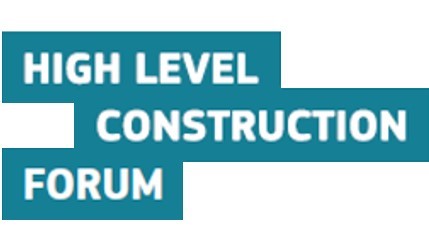High Level Construction Forum discusses whole life cycle emissions of buildings
CECE was interviewed by Ramboll in October 2023 as a stakeholder from the EU building and construction ecosystem. The interview was part of the ongoing analysis on whole life carbon (WLC) emissions of the EU building stock and associated construction activities carried out on behalf of the European Commission.

Committed to developing solutions to decarbonize its industry, CECE introduced Ramboll to its 2021 position paper: ‘The role of construction equipment in decarbonising Europe’. Considering that buildings represent 40% of CO2 emissions in the EU, multiple policies at EU and national levels emphasized that a whole life carbon emission approach is key to addressing embodied emissions, carbon removals and reducing emissions from the energy utilized by buildings. The lack of data available on whole life carbon emissions of buildings across the EU led the European Commission to commission Ramboll to develop a more comprehensive overview of effects and applicability of life-cycle emissions and carbon removal strategies at EU and Member State level.
The Webinar of the High Level Construction Forum (HLCF) was thus held on 17th October in order to notably update HLCF stakeholders on the progress relating to the aforementioned Commission-funded analysis. The Webinar started with the opening remarks of Ms Katharina Knapton-Vierlich, Head of Unit, DG GROW, European Commission.
The first portion of the webinar revolved around the whole life cycle emissions of buildings. Mr Steinmann, from Ramboll, introduced the audience to the key takeaways from their stakeholder consultation on the EU roadmap for the reduction of whole life carbon emissions of buildings. 250 responses have been collected between mid-July and mid-September 2023. In summary, stakeholders are reportedly confident about the potential and applicability of available measures and low-carbon solutions. There is a need for additional robust whole life carbon policies. It is also noteworthy that the introduction of mandatory maximum values for buildings is massively supported (85%). 70% of respondents endorse the EU in taking a role to develop a harmonized methodology. Ultimately, there is stronger support (67%) for target setting being carried out at national level with guidance from indicative EU values.
Mr Le Den, also from Ramboll, provided an update on the preparatory action for the 'Analysis of GHG emissions of buildings and construction’. The project consists of two workstreams: data analysis on whole life cycle across Member States and analysis of life cycle of GHG emissions and carbon removals of EU buildings and construction. In terms of milestones, the collection of existing data, baseline analysis as well as the collection and generation of new WLC data have been carried out. The modelling of future WLC scenarios and the work on consultations, insights and outreach should be completed by June 2025.
Afterwards, Cecile Dap, from LCBI, presented the Low Carbon Initiative. It is a carbon metric based on three main criteria and European frameworks in force: embodied carbon, operational carbon and biogenic carbon. This innovative technology methodology factors performance thresholds in: a carbon indicator, a performance pathway, flagship examples, consistence with European low-targets. The metric will be finalized by the end of 2023 and the LCBI certification on newbuilt by Q1 2024.
In addition, Sophie Rathmes, Policy Officer at DG FISMA, European Commission introduced the main provisions of EU Taxonomy in the context of the sustainable finance framework. Ms Rathmes indicated that the Taxonomy Delegated Acts (Environment and Climate Delegated acts) are currently under the scrutiny of the Council and the European Parliament. Regarding the Environmental Delegated Act, Mr Piotr Kowalczyk, Policy Officer at DG ENV, listed the 13 activities relevant to construction: notably construction of new buildings, renovation of existing buildings, demolition and wrecking of buildings, maintenance of roads and motorways, preparation for re-use of end-of-life products and product components and marketplace for the trade of second-hand goods for reuse.
Ultimately, Marco Camboni, Managing Director at RPA Europe SRL (contractor of the Commission), introduced the revision and update of the EU guidance on construction & demolition waste management (CDW). The general objective is to review and update the protocol as well as the guideline documents in line with the EU policy development, fulfil stakeholders’ needs and support the industry in the transition to a circular economy in addition to taking account of various CDW management practices throughout the EU Member States.
In conclusion, Mr Philippe Moseley, Policy Officer at DG GROW, reminded the participants that a Call for commitments and participation in the co-implementation of Transition Pathway for Construction has been recently launched. The fourth Plenary meeting of the HLCF will be tentatively held in March 2024, one year after the publication of the Transition pathway for Construction.
More news